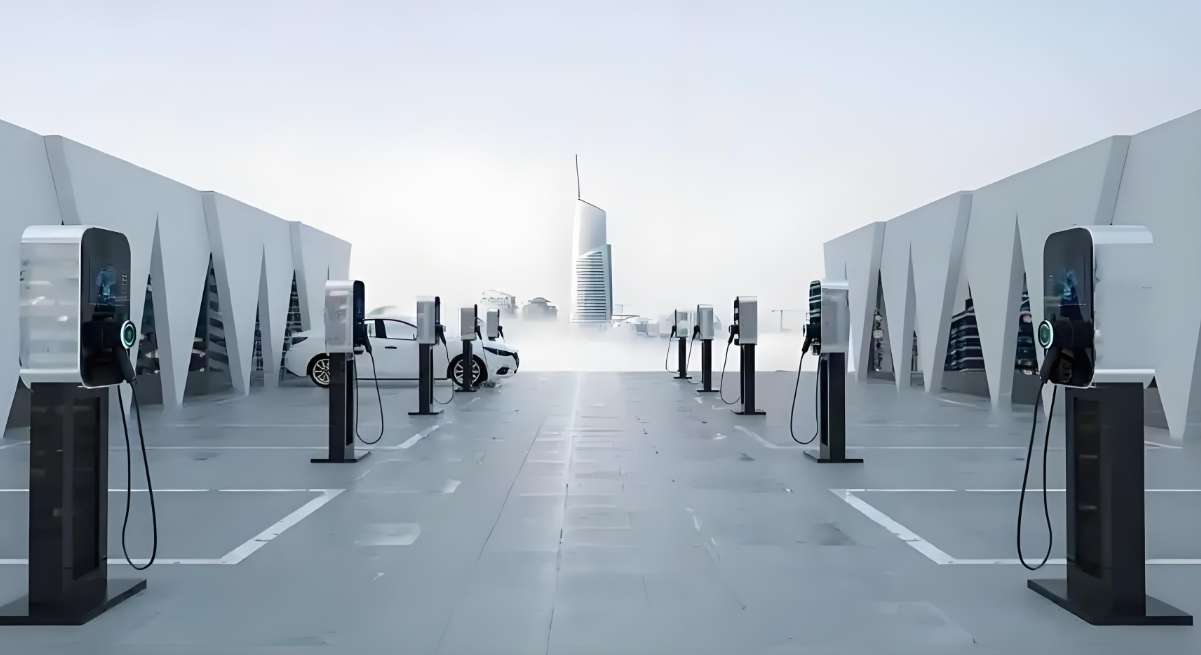
Beneath the sleek appearance of modern electric vehicle (EV) charging stations lies an unsung hero: the uncompromising precision provided by advanced CNC manufacturing technology. As the global demand for reliable high power charging solutions surges, the difference between ordinary and exceptional often lies in the components that are invisible to the naked eye. Inside the sealed charging cabinets and multi connector assemblies, precision machined parts work together to ensure the safe transmission of extreme currents under various harsh environmental conditions.
The transition to ultra - fast charging above 400kW places extremely high demands on internal structures. Where traditional manufacturing methods fall short is precisely where CNC machining technology shines - especially in the production of key interface components such as 200A power terminals. Take the phosphor - bronze contact arrays inside the DC charging guns, for example: these three - dimensional curved structures require micron - level precision to maintain constant elasticity throughout 100,000 plug - and - unplug cycles. Any deviation can lead to a sharp increase in local resistance, which in turn may cause thermal runaway accidents. Our five - axis machining centers can achieve seamless curvature transitions on complex geometries, eliminating dangerous current hotspots and ensuring a butter - smooth connection experience.
Thermal management is another domain conquered by precision machining. Monolithic aluminum heat sinks are machined from solid blanks, featuring optimized fin structures that cannot be achieved by stamping or casting processes. The integrated cooling channels follow paths designed based on mathematical models and can dissipate heat losses of over 40kW without active assistance. This passive cooling characteristic is particularly important for charging stations in remote areas - where fan failures could lead to the paralysis of the entire charging hub. Meanwhile, the CNC - machined electromagnetic shielding enclosures maintain perfect conductivity at the seams, a feature that is crucial for preventing electromagnetic interference during the synchronization of vehicles with the power grid.
In addition to the charging hardware itself, we apply the same stringent standards to the production of supporting equipment. Custom fixtures used for aligning busbar assemblies maintain a positional tolerance of less than 0.05mm during the welding process. Tooling fixtures designed for resin - encapsulated transformer modules incorporate precisely calculated thermal expansion coefficients. These auxiliary investments bring compound benefits by increasing production efficiency and eliminating on - site failures.
The requirements of sustainable development further validate the value of precision manufacturing. Compared with traditional subtractive processes, CNC machining minimizes material waste to the greatest extent, and the carefully designed ultra - long service life reduces the pressure on landfills. Our closed - loop coolant system and ISO 14001 - certified facilities meet the increasingly mandatory carbon - reduction targets of municipal charging contracts across the UK.
For executives responsible for purchasing charging infrastructure, decision - making considerations go far beyond the unit cost of connectors. Downtime losses caused by terminal melting or failure of environmental seals far exceed component savings. Our customer feedback shows that after switching to CNC - machined power distribution systems, warranty claims have been reduced by 92%. The silent discipline of micron - level precision brings audible results: no more alarms ringing at three in the morning, no more complaints from stranded drivers, and no preventable liability accidents.
To learn how our machining technology can safeguard your charging facilities, please visit www.simituo.com.